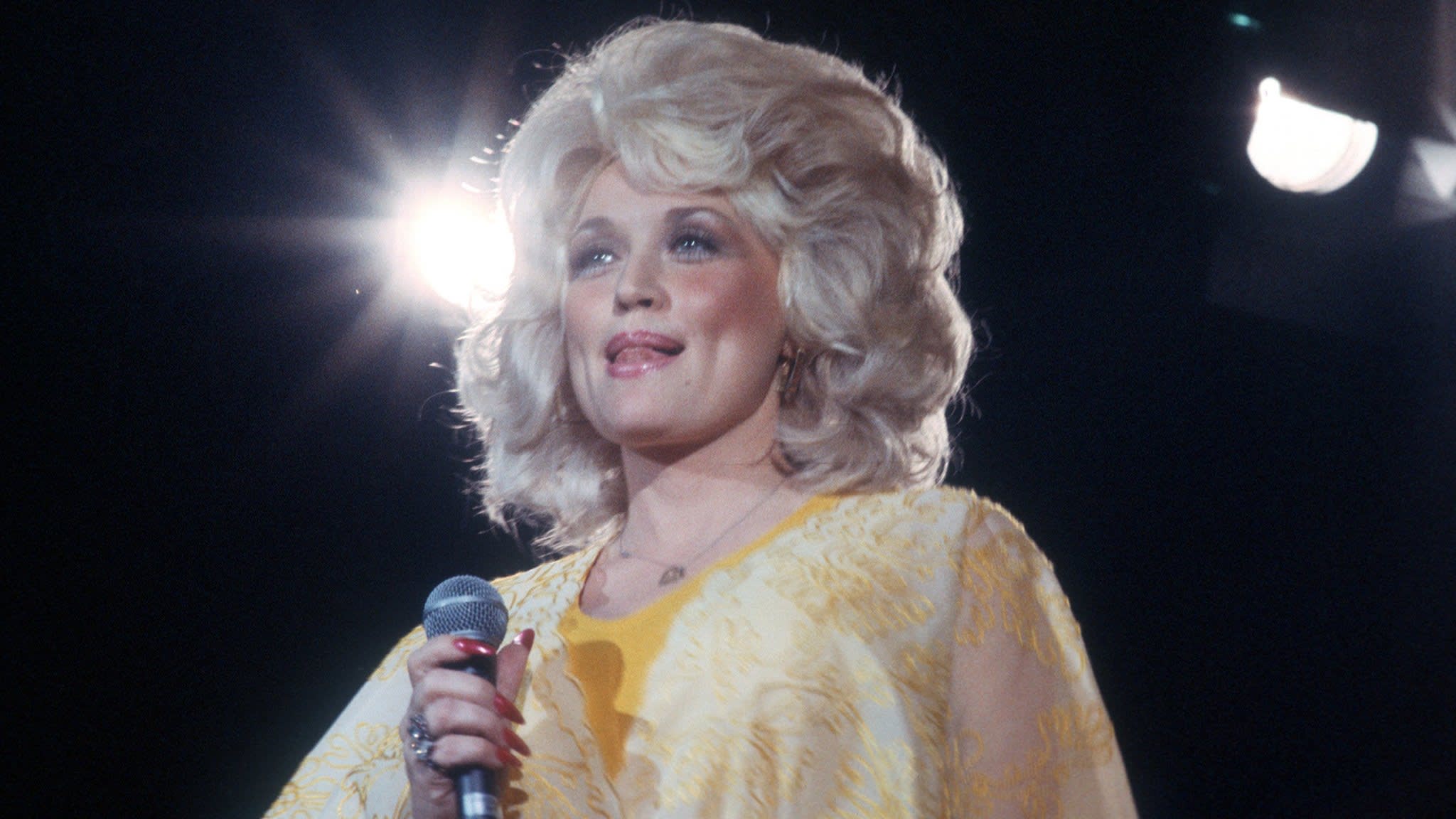Quick — what’s Dolly Parton’s most famous song? If you went by sales, you’d say “9 to 5”, or “Islands in the Stream”. But there’s a good chance you went for a songthat topped out at a lowly number 60 in the US singles chart. “Jolene, Jolene, Jolene, Jolene,” pleads the narrator, “I’m beggin’ of you please don’t take my man.” The song walks the line between dignity and desperation, given urgency by its rattling tempo and Chip Young’s flashing thumb-picked guitar.
By now, its origins are almost irrelevant. Parton has said that it was inspired by her husband having eyes made at him by a Nashville bank clerk. But it is interesting that so many people have felt that a female narrator must be in want of unsolicited advice. As recently as this year, the rapper Stormzy embarked on a lengthy exegesis of the song in a series of tweets. “Kinda sad actually,” he concluded. “Wish Dolly had more self-love and confidence or the strength to just leave my man cah it ain’t really Jolene’s fault.”
He is not the only commentator to have taken Jolene’s side. When David Rotheray of The Beautiful South made an album of “answer songs” in 2013, he mused that “Jolene” had “always sounded to me like a delusional ‘low self-esteem’ song”. In “Jolene's Song”, the singer assumes that her man is attracted to Jolene, “but,” wrote Rotheray in a blog, “presents no evidence to this effect. How does she know?” Even conceding that the husband calls out Jolene’s name in his sleep, Rotheray doubles down on the gaslighting. “But can she be sure?” he wrote. “Maybe he's shouting ‘gangrene’ or ‘James Dean’, or even ‘Peek Freans’?”
Rotheray’s “Jolene’s Song” is sung by the Welsh-based singer Julie Murphy. “I don’t want him,” she sings, accompanying herself on the piano. “Broken in the corner lies an old wooden bin/Reading ‘unwanted paper to be placed herein’. Please take your song and drop it right in/’Cause I don’t want him” — and then she adds, undermining her protestations of innocence, “any more.”
The country singer Cam takes a slightly different line on “Diane”. Over perky bouncing guitar, her Jolene first equivocates (“I promise I didn't know he was your man/I would have noticed a gold wedding band, Diane/I'd rather you hate me than not understand”) and then scolds: “You can blame me if it helps/That’s what a good wife would do/But you're only cheating yourself.” Kirsty MacColldecided that the narrator was called Caroline: in her song of that name, with swooning country harmonies, the implied Jolene blames the husband. “How could you walk out on her/And turn to her best friend?… I wish I'd turned you away/And my head said go, but my heart, my heart said stay.” Jennifer Nettles, on “That Girl”, telephones an unnamed wife to tell her, to a background of handclaps, “It wasn't my name on his lips/No, he didn't call for me/He didn't say, Jolene …”
Cover versions of the original — this is Parton’s most covered song — are equally interesting. Men often replay Parton’s quiet dignity as hysteria. Jack White — whose entire modus operandi with cover versions this is (viz, his demolition of U2’s “Love Is Blindness” for the soundtrack of Baz Luhrmann’s fantasia on The Great Gatsby) — duly obliges, all Neil Young firestorm and catch-in-the-voice screaming. (A version widely circulated on the internet that simply slows Parton’s original record down from 45rpm to 33 shows that a slow, low-pitched version does not have to sound overwrought.) Goth band Sisters of Mercy would occasionally play “Jolene” to provoke their audiences, with baritone Sturm und Drang. Ray Lamontagnerecorded a completely different song called “Jolene”, a marked choice of title that literally overwrites another story.
Women have been more sympathetic —Laura Marling, with a heavy Tennessee accent, playing with Mumford and Sons; Tori Amos, playing two pianos simultaneously in a menacing psychodrama; Glasgow electropunks Strawberry Switchbladebringing down the curtain on their career with an edgy dance. Iranian singer Leila Forouhar’s “Joleen” whips along with a string orchestra, closer in spirit to Olivia Newton-John’s disco reading than to Susanna and the Magical Orchestra’s spooky, fractured Norwegian take. Parton’s goddaughter, Miley Cyrus, has recorded a splendidly tougher, more assertive version, rolling piano high in the mix.
Parton, for her part, still regularly performs the song: in 2017 her version with the a cappella and beatboxing group Pentatonix won a ninth Grammy. At the end, as the group’s harmonies fade away, she sighs in a tone of almost-friendly exasperation, “Oh, Jolene!”
We’re keen to hear from our readers. Has anyone bettered Dolly Parton’s version of ‘Jolene’? Let us know in the comments below.
‘The Life of a Song: The fascinating stories behind 50 of the world’s best-loved songs’, edited by David Cheal and Jan Dalley, is published by Brewer’s.
Music credits: RLG/Legacy, Navigator Records, RCA Records Label, Edsel, Decca (UMO), XL Recordings, naïve, Domino Recording Co, Caltex Records, UMC (Universal Music Catalogue), SusannaSonata
Picture credit: Michael Ochs Archives/Getty Images
